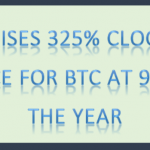Round-Up of Cryptocurrency Regulations
It’s no doubt that cryptocurrencies are becoming mainstream deciding factors across national economies. Amidst everything is the turmoil with regulations and the economies dragging on to recovery mode after the COVID-19 crisis.
It seems regulators are unsure of the landscape they are trending on. While blockchains have given more power to the people, where is the role of the government? And what is the best approach to handling crypto-regulations? Tough questions, though.
South Korea – Younger Voters Snare with the hope of Reasonable Crypto Taxation Caps.
Can cryptocurrencies sway voter allegiance? South Korea’s Democratic Party is campaigning under the lure of easing Crypto-taxes. That comes ahead of elections coming next year. Earlier in April, the Deputy President spiked uproar by referring to cryptocurrencies as “not monetary or financial assets.” This comes in the wake of an uprising movement to oust a current FSC chief – Eun Sung-soo. South Koreans in the age bracket of 20 to 40 are vouching for the disapproval to hike taxes for cryptocurrencies to 20 % in the coming year.
In Ghana, the SEC has issued a warning to residents dealing with cryptocurrencies
In a statement, the head of Ghana’s Deputy Director of Securities and Exchange Commission, Paul Ababio, says cryptocurrencies are not a recognized form of payment. Thus Ghanaians should stay away from them.
Thailand – Changes for Crypto-Exchanges in Coming Year
In Thailand, changes in Cryptocurrencies stating July SEC require exchanges to have customers appear physically for suitability and Know Your Customer (KYC) test. After the changes, cryptocurrency exchanges will have to shift from online registrations, as is the current practice in Thailand.
Fraudulent actors who submit fake documents risk banning. In a Statement, Poramin Insom, the Co-founder /Director of cryptocurrency trading platform Satang Corp. says: “Digital asset exchanges have to report any transaction worth over 1.8 million baht [$58,000] under the money laundering law, and must set up a database for inspections by regulators.”



